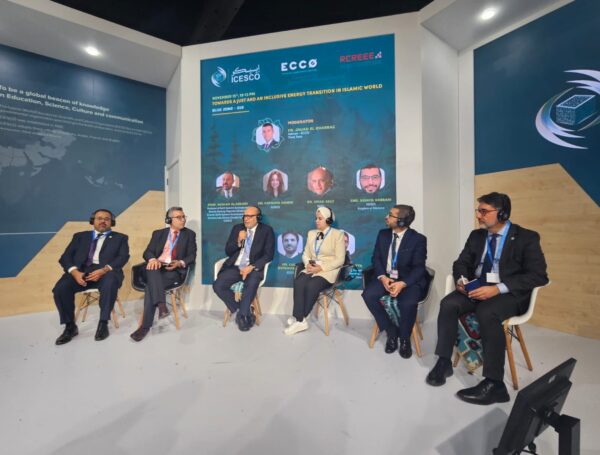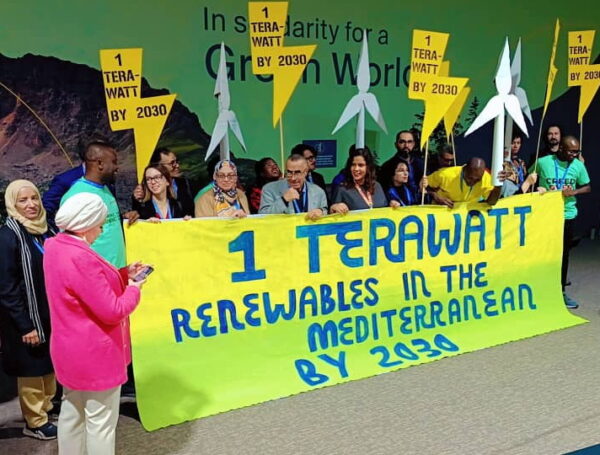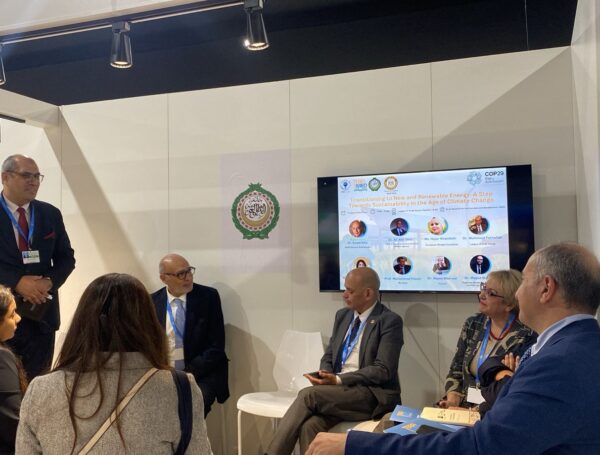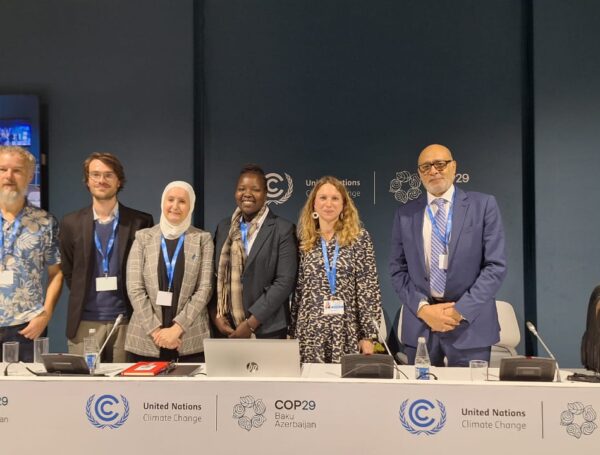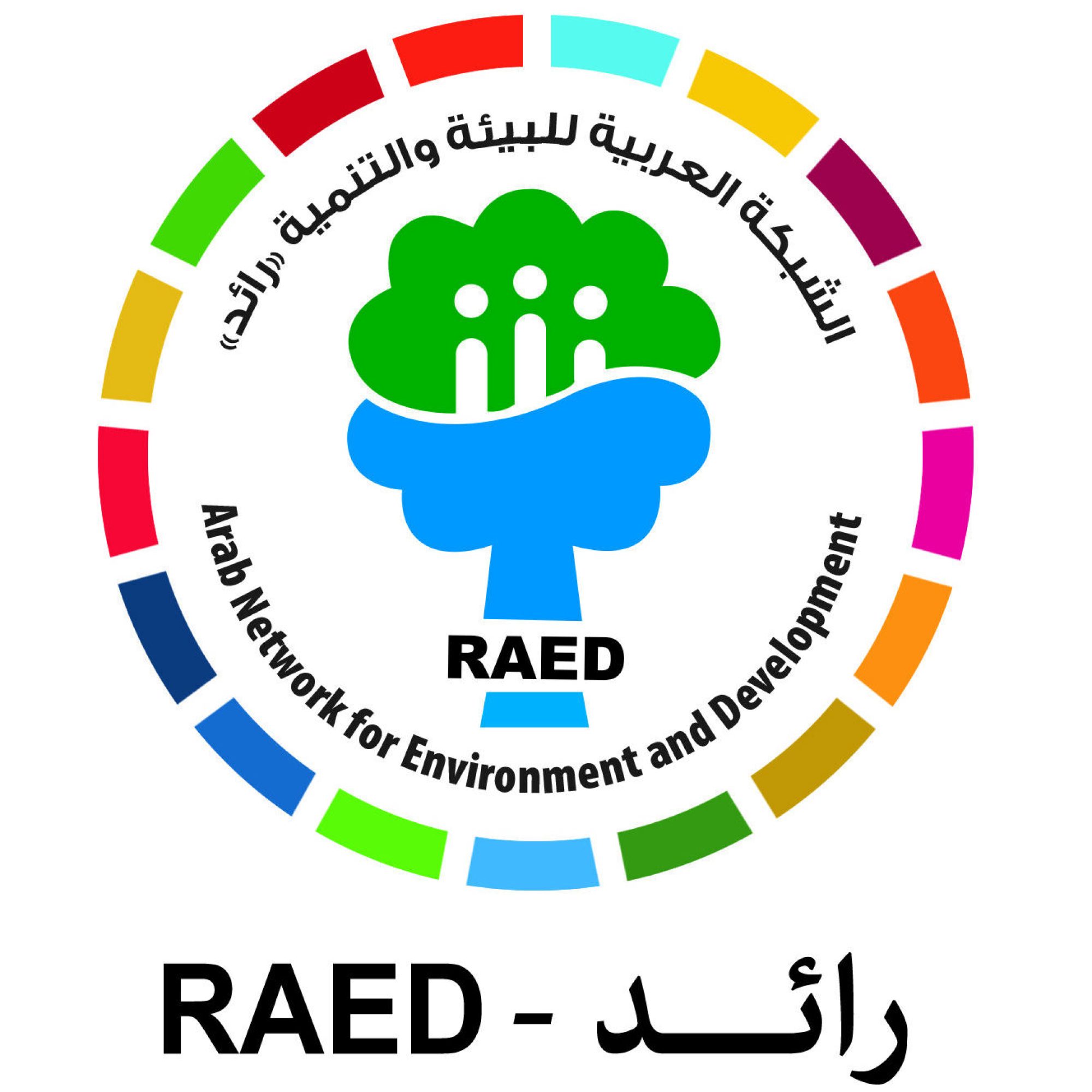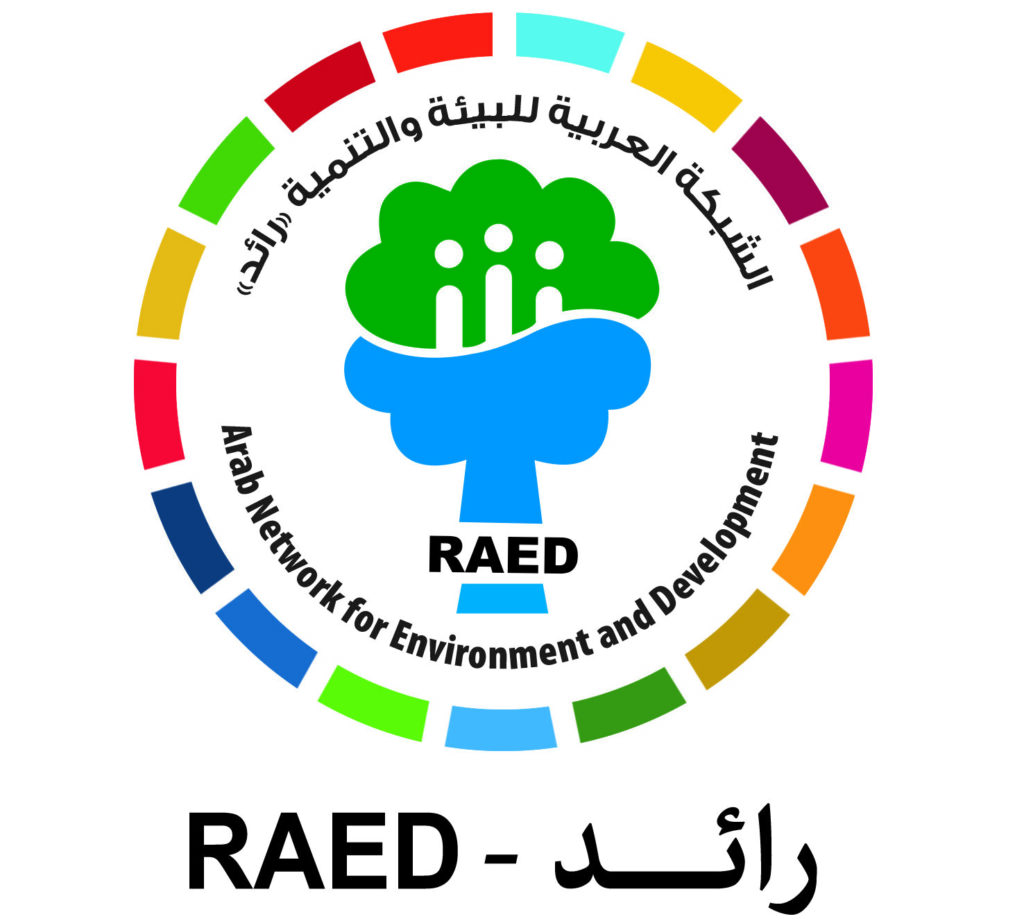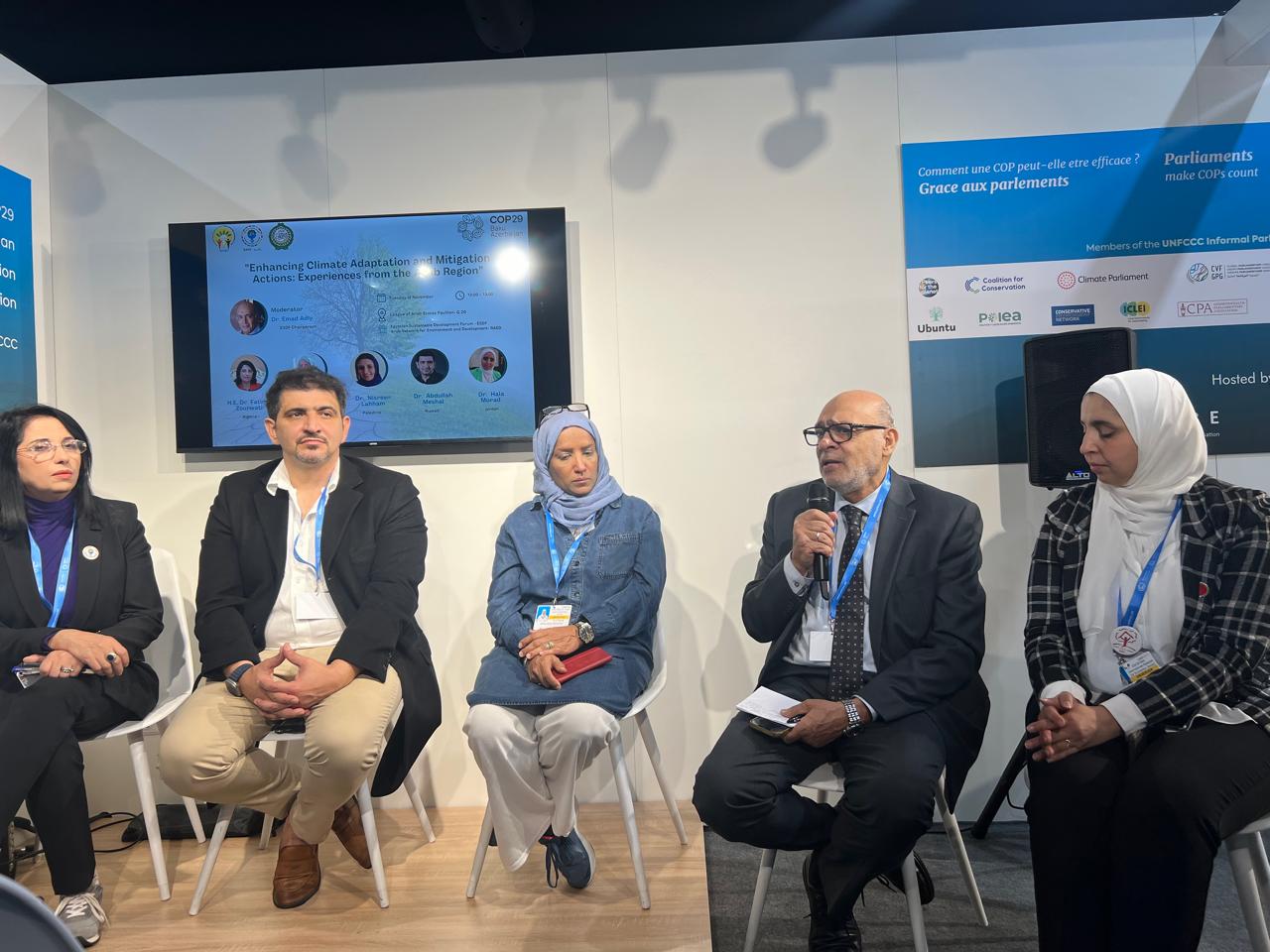COP29 Charts the Planet’s Future in the Face of the Climate Crisis
RAED Activities at the Summit
Event Highlights
On November 14, RAED held a session titled,
Catalyzing Climate Finance Strategies and its Importance in Building Capacity to Address Environmental Challenges.
The session focused on the importance of catalyzing climate finance to build capacities for addressing environmental challenges. It also showcased examples of projects and initiatives that contribute to climate adaptation and mitigation.
Participants emphasized the critical role of climate finance in expanding opportunities for civil society organizations to support local projects aimed at environmental protection and climate adaptation. These include initiatives in sustainable agriculture, energy and water security, and climate-resilient solutions.
The session was moderated by RAED’s General Coordinator, Dr. Emad Adly. It featured contributions from Dr. Mahmoud Fathallah, Director of the Environment and Meteorology Department at the League of Arab States; Martin Haibel, Communications Manager at the Interreg NEXT MED program; Angelika Shamerina from the Global Environment Facility Small Grants Programme; Dr. Alaa Sarhan; and Eng. Ahmed Kamal.
On November 15, RAED’s activities reached a significant momentum with the organization of three events:
Transition to New and Renewable Energy: A Step Towards Sustainability in the Age of Climate Change
This session, held in collaboration with the TeraMED initiative. This initiative is designed to stimulate a major shift toward renewable energy sources, enhance energy security, and drive economic growth through sustainable investments. The TeraMED initiative represents a vital commitment to environmental sustainability and climate action.
The event aimed to shed light on the challenges associated with transitioning to new and renewable energy, discuss key solutions and available alternatives, and present efforts by Arab civil society to support and promote the TeraMED initiative in Algeria, Egypt, Morocco, and Tunisia.
The session was moderated by RAED’s General Coordinator, Dr. Emad Adly, and featured speakers including Hajar Khamlichi, representative of the European Climate Foundation; Dr. Fatima Zerouati, former Minister of Environment in Algeria; Dr. Mohamed Fetouhi, RAED’s Assistant General Coordinator for the Maghreb Region; and Dr. Najwa Bouraoui, RAED Coordinator in Tunisia.
Unstoppable Global Warming – Increasing Climatic Loss-Damage and Human Mobility
This event addressed the failure of major greenhouse gas emitters to limit global warming to 1.5°C, exacerbating climate losses and triggering increased human displacement. Discussions focused on climate finance as a critical tool for enhancing resilience and adaptation in migration contexts.
The Perilous Journey of those Displaced by Climate Change and the Path to Safeguarding their Rights
RAED’s final event of the day was held in collaboration with the Global Network for Disaster Risk Reduction and the Human and Environment Association in Lebanon. the session explored the issues and challenges faced by individuals displaced by climate change. It also outlined concrete actions needed to protect their rights and ensure their safety amidst growing environmental threats.
On November 18, RAED organized two side events:
Responding to Displacement-Related Loss and Damage through Inclusive Data, Finance and Action.
This session focused on strategies to address loss and damage associated with displacement by leveraging comprehensive data, financing, and action, making displacement a central issue in the discourse on loss and damage. Discussions highlighted that displaced communities, or those at risk of displacement, are often the most vulnerable to the impacts of climate change. Participants shared perspectives on the best approaches to engage communities in preventing and responding to loss and damage effectively.
This event was held in collaboration with the International Refugee Organization, IMPACT Initiatives, the Internal Displacement Monitoring Centre, Munich Re Foundation/UNEP, the International Water Management Institute, and the Resilient Communities Rehabilitation Network.
International Day: Preventing Use of Environment in Wars & Military Conflicts, November 6
This session, led by RAED members from the Kuwait Environment Protection Society and the Human and Environment Association in Lebanon.
This event discussed the recognition of November 6 as an international day dedicated to preventing the exploitation of the environment in warfare and armed conflicts. It aimed to raise awareness about the day while emphasizing the adverse impacts of war on the environment and its role in hindering progress toward all sustainable development goals. Speakers addressed critical issues such as impacts on health, water and food security, pollution, deforestation, desertification, and more.
Concluding Activities
On November 19, RAED hosted a panel at the Arab League Pavilion titled, “Strategies for Civil Society Governance and the Challenges it Faces in the Arab World.”
Later that day, RAED concluded its activities with a session also held at the Arab League Pavilion titled:
Promoting Climate Change Adaptation and Mitigation: Experiences from the Arab Region.
RAED’s efforts at COP29 underscored the importance of collective action, innovative solutions, and robust climate finance in addressing the urgent challenges of climate change.
